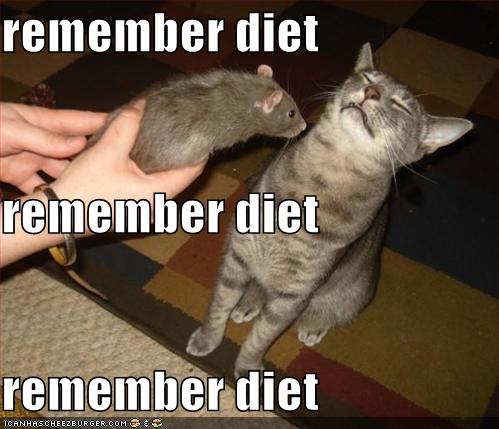In my first few years of college, I gained over 40 pounds, much of that over one summer. I wasn’t doing well at all—I was a mess within a mess.
In a haze of depression and binge eating disorder, I thought if I could just get to the “right” weight, everything would be okay. If I could just get “there,” everyone would like me, I’d sound poised and sophisticated all the time and a sense of style and ability to do my hair in something other than a ponytail would spring forth. In this place, any advertisement for quick weight loss bit hard and hung on (“Try this one trick to lose belly fat and grow 2 cup sizes”—sign me up!).
I could never actually figure out what the “trick” was though. Whenever I clicked through an ad, I found myself in a maze of different size fonts relating how “Suzy” had used this one weird trick and lost a bunch of pounds which led her ex to so regret leaving her and then she won the lottery. I don’t know, maybe I didn’t click through enough links or give my credit card information.
Now—15 years, three kids and a lot of life later—those advertisements don’t catch me anymore (though I do find them good for a giggle). Perhaps I’ve gained a bit of wisdom. In any case, I realize I’ve learned a few important things from getting sucked in by those ads:
There are no shortcuts to losing weight or anything you want in life.
Change will require effort to be taken; there’s no way around it. Anyone or anything promising a magic bullet solution? Well, maybe it’s something worth thinking long and hard about before giving away money or running headlong down that path. It may even be worth taking a moment to wonder why it seems something must happen right now. What’s really going on there?
After gaining more than 40 pounds, I’m sure I needed to lose a few for health-related reasons. Increased risk for stuff related to extra weight (e.g., diabetes, high blood pressure, heart problems, arthritis)? Not so awesome. However, it wasn’t gained overnight so it was kind of funny I’d expect it to come off overnight.
With each (probably questionable) quick fix attempt and almost guaranteed failure, I’d spin downwards and then eat more to try and make the icky feelings of failure and “I suck” go away. Or maybe I’d be able to stick with it for a few days, start to notice a difference and then fall off the wagon when some life-stressor hit. Not sure why I kept thinking I could make lasting change using methods that were pretty self-hating. But I certainly kept trying.
When I actually did start to lose weight and keep it off, it wasn’t that I had figured out how to “try harder” or gained more willpower. Rather, I started to shift my focus from “lose weight now!” to “what can I do that actually makes me feel good?” When working with the unhelpful habits and patterns (with baby steps that felt mentally doable), the weight started to come off kind of on its own. And then whenever I fell back into old patterns and started to try to lose weight, pounds would creep back. Which brings me to the next learning…
Dieting is a distraction.
It’s taken me forever to learn this one (and I’m reminded still, catching myself at odd moments when feeling down, starting to think “if I could just lose a few pounds”). Dieting is a distraction, pulling our attention outward for answers rather than looking within for what’s really causing the feelings of discomfort, off-ness and ick.
A quick distinction on diet versus dieting. I know there are many different ways of eating out there that can be totally helpful depending on an individual’s body and what works for each of us. I’ve found gluten-free has much lessened zits and brain fog for me (win!). On the dieting end, if we’re constantly restricting types and/or amounts of food, forcing ourselves to “eat this way to lose weight”—well, I’m not sure how helpful that is in the long run. What’s the root of dieting: loving ourselves or hating ourselves?
When teetering on the edge of depression and eating disorders, I remember feeling unhappy and really wanting something to change. I just didn’t know what and wasn’t sure where to start to figure it out. With the feelings I’d labeled as “bad,” rather than wondering why I was feeling them and digging a bit, I turned my focus to my body and what I thought needed fixing (hey—the ads promised losing weight would help). If I could get to the “right” weight, if I could just work harder at school and athletics, then clearly I’d start to feel better.
Twisted logic to be sure. However, focusing on dieting definitely took my attention and energy. Then when things weren’t working out and I felt even crappier, I figured I just wasn’t trying hard enough. And so the cycle went on and on. It was hard to pull myself out to take a look at what was causing the feelings of yuck. Surprise, surprise—since I wasn’t focusing on what was actually going on, nothing got better.
When we feel crappy, it’s hard to show up.
On the physical, emotional and mental ends, when we feel crappy it’s hard to show up in life. When we’re not showing up and taking action (living!), I don’t know about others but for me, life feels like it sucks.
As I slowly looked at some of the habits and behaviors that did help me feel better (a short regular walk helped way more than intending to go to the gym for two hours but rarely making it), I began to notice some of the quick fix methods probably did more harm than good for my body.
From pills to extreme diets, not many focused on real food items, basic exercise or water. Looking at it now, it’s not a surprise I started to feel more puffy, grumpy and irritable when my diet began to focus on items made in a plant (diet soda all day every day) rather than real, whole foods. And when I had headaches galore, trouble sleeping and aching knees and shoulders, it was hard to focus on things beyond how terrible I felt. When I started to eat actual whole foods, it was pretty amazing how much of the physical yuck went away on its own, and how much clearer my mind became.
When ready, really and truly ready to take action, maybe the way that will work best is the one that will actually work for us as individuals.
I had an interesting exchange with a friend about “black and white” versus “baby steps and moderation.” For years she felt she had some integral flaw because she couldn’t make moderate changes in diet. It was an aha moment when she learned some people need strict boundaries while others thrive in moderation (and neither is right or wrong; it’s what works for the individual). She realized she thrived with black and white boundaries. I fell on the other side of the spectrum: I do much better with baby steps and moderation. Funny—I, too, had beaten myself up and believed I had an integral flaw because I couldn’t “just do it” and make radical changes. I had to inch myself into changes.
Ditch what works for our neighbor or best friend. Let’s honor ourselves and experiment to find what works for us. Even the littlest baby steps will make a difference that may blow the mind. Each of us is worth it.
So weight loss ads: thank you! You’ve helped me really see I’ve got this one body for this go round. It can take me on an amazing ride if I take care of it and love it.
Perhaps we can consider health as a vehicle, rather than a destination. If we listen, really and truly listen, and decipher what actually makes us and our bodies feel good rather than the noise from the outside—man, the ride is so much smoother and way more fun.
~
Author: Robin Massey
Editor: Katarina Tavčar; Sara Kärpänen
Photo: chwalker01/Flickr







Read 0 comments and reply